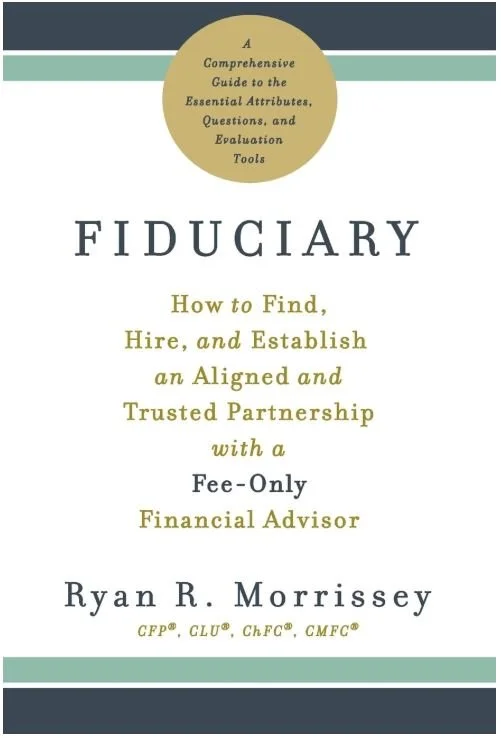How to Set Up Your Estate Plan with Natalie Perry
This week, I’m excited to be joined by a special guest who brings both expertise and clarity to a topic that too often gets overlooked — estate planning. Natalie Perry is both a CPA and an attorney, with over two decades of experience helping families navigate the complexities of business succession and estate matters.
Why Estate Planning Is More Than Just a Will
Estate planning might sound like something reserved for the ultra-wealthy, but in reality, it impacts everyone — regardless of income or asset level. As Natalie puts it, "Estate planning can be as simple as titling your assets properly, or as comprehensive as establishing a will, trust, and powers of attorney."
At its core, estate planning is about making sure your wishes are honored and your loved ones are protected — whether you’re alive but incapacitated or after your passing. Without proper documentation, decisions could fall into the hands of the court system, creating delays, confusion, and expenses for your family.
The Probate Problem: Why Planning Ahead Matters
One of the key issues with not having an estate plan is the potential for probate. Probate is the legal process of administering a deceased person’s estate — and it’s often slow, expensive, and public.
"In major metropolitan areas like Cook County, Illinois, you could be waiting three months just to get a court date to open an estate," Natalie says. And that’s before any distribution of assets begins. If your family doesn't have access to liquid funds, that delay can be more than just inconvenient — it can be financially devastating.
Disagreements among heirs or claims from creditors can drag the process out even longer. That’s why a basic estate plan, even just a will and powers of attorney, is so critical.
Essential Estate Planning Documents Everyone Should Have
So what should be included in a foundational estate plan?
Will – Determines how your assets are distributed. Without one, your state’s laws decide — and your spouse may not receive everything if you have children.
Power of Attorney for Property – Lets someone manage your finances if you’re unable to do so yourself.
Healthcare Power of Attorney – Allows a trusted person to make medical decisions on your behalf.
Living Will (in some states) – Specifies your wishes for end-of-life care.
“These documents are very state-specific,” Natalie explains. “But having them in place can save your loved ones from lengthy and costly court proceedings.”
The Titling Trap — and How to Avoid It
A common mistake? Assuming that holding assets jointly with a spouse or child eliminates the need for estate planning. While joint ownership can avoid probate, it’s not without risk — especially if you add children to accounts or property titles.
“If your child gets divorced or sued, your assets could be at risk,” Natalie warns. “Plus, you’ll need their consent to sell any jointly owned property, which can create logistical headaches.”
In short: joint titling might provide quick access, but it’s not a substitute for a comprehensive estate plan.
Shipped to your door!
Available on Amazon Marketplace (click the image)
Trusts: Not Just for the Wealthy
Many people hear the word "trust" and immediately think of millionaires. But that’s a myth. Trusts are useful tools for anyone looking to avoid probate, ensure privacy, and simplify asset management after death.
“Think of a trust as a will substitute,” Natalie says. “It names a trustee who can immediately act on your behalf without court involvement.”
There are two main types:
Revocable (Living) Trust – Created during your lifetime and can be changed or revoked. You maintain control.
Irrevocable Trust – Typically used for gifting or tax planning, where you relinquish control.
Assets titled in a revocable trust can bypass probate entirely, saving time and money for your beneficiaries. It’s important, however, to remember that simply creating a trust isn’t enough — you must fund it by retitling key assets into the trust's name.
Beneficiary Designations: A Powerful Yet Imperfect Tool
What about naming beneficiaries on accounts like IRAs, life insurance, or even bank accounts?
Designating beneficiaries — or using Transfer on Death (TOD) provisions — can speed up access to funds. But it’s easy to misstep. For example, if different children are named on different accounts, distributions might not be equal. Or if you name a trust as a beneficiary without the right setup, it could accelerate taxes on inherited retirement accounts.
Natalie suggests naming individual beneficiaries for retirement accounts unless there are minors involved or creditor concerns. “If a trust is named incorrectly, it could limit the ability to stretch IRA distributions and result in higher taxes.”
Beyond Documents: The Importance of Communication and Documentation
Documents are essential — but so is clarity. Natalie recommends keeping a record of all assets, how they’re titled, and where important papers are stored. She also suggests writing a “letter of wishes” for things that aren’t strictly legal instructions, like your preferences for education, religious upbringing, or funeral arrangements.
That kind of guidance can make all the difference for your family. One tool I often recommend to clients is the Family Love Letter — a personal document that lays out key information, contacts, and final wishes. It’s not legally binding, but it’s emotionally powerful.
Final Thoughts: Take Action Today
If there’s one takeaway from this conversation, it’s this: don’t wait.
Whether your estate is simple or complex, having a plan is a gift to your loved ones. With the right documents and thoughtful titling, you can save your family time, stress, and unnecessary expenses.
Thanks again to Natalie Perry for sharing her expertise and helping demystify the estate planning process.
Next Steps:
Review your existing estate plan, or start building one.
Talk to a trusted advisor or estate planning attorney to ensure your plan reflects your goals.
Organize your records and communicate your wishes to your family.
Because the best legacy isn’t just the assets you leave behind — it’s the clarity and peace of mind you pass on with them.
If you have a question or topic that you’d like to have considered for a future episode/blog post, you can request it by going to www.retirewithryan.com and clicking on ask a question.
As always, have a great day, a better week, and I look forward to talking with you on the next blog post, podcast, YouTube video, or wherever we have the pleasure of connecting!
Written by Ryan Morrissey
Founder & CEO of Morrissey Wealth Management
Host of the Retire with Ryan Podcast




